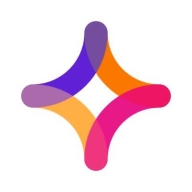

Jitterbit Harmony and Oracle Big Data SQL compete in data integration and management. Jitterbit stands out for affordability and support, whereas Oracle shines with advanced features, offering a comprehensive high-end solution.
Features: Jitterbit Harmony integrates seamlessly with APIs, supports intuitive workflow automation, and is known for cost-effectiveness. Oracle Big Data SQL excels in data analytics, integrates with Hadoop and NoSQL, and offers advanced data management.
Ease of Deployment and Customer Service: Jitterbit Harmony offers straightforward deployment and exceptional customer service for a quick setup. Oracle Big Data SQL, with its extensive feature set, requires a more complex deployment but provides comprehensive support.
Pricing and ROI: Jitterbit Harmony is budget-friendly with rapid ROI, benefiting cost-conscious companies. Oracle Big Data SQL involves higher costs, but its robust capabilities provide significant long-term ROI for those investing in advanced data management.


Jitterbit Harmony is a comprehensive platform for data integration and API management, enabling seamless synchronization and automation across cloud-based and on-premises applications.
Users leverage Jitterbit Harmony to integrate systems like ERP and CRM applications, simplifying complex data workflows and enhancing automation. It supports efficient data migration and ensures smooth connectivity, handling diverse integration needs and helping streamline business processes. Users emphasize its drag-and-drop functionality and extensive templates, which contribute to its robust performance. However, improvements are needed in data mapping, error message clarity, and documentation, especially when dealing with large data volumes.
What are the key features of Jitterbit Harmony?Companies across retail, manufacturing, healthcare, and finance sectors use Jitterbit Harmony to integrate critical applications and automate workflows. In retail, it connects inventory systems with sales platforms, reducing manual effort. Manufacturers sync their ERP systems with supply chain software, optimizing operations. Healthcare organizations integrate patient management systems with insurance databases, streamlining patient care. Financial institutions use it to connect accounting software with banking systems, ensuring real-time financial data exchange.
A culture of innovation has propelled Oracle since its inception. Today, thanks to exceptional people, we lead the market in autonomous, cloud, and applications technologies.
We monitor all Cloud Data Integration reviews to prevent fraudulent reviews and keep review quality high. We do not post reviews by company employees or direct competitors. We validate each review for authenticity via cross-reference with LinkedIn, and personal follow-up with the reviewer when necessary.